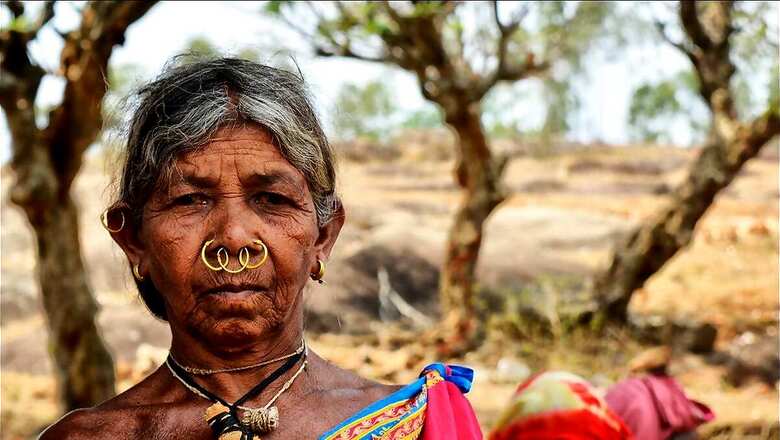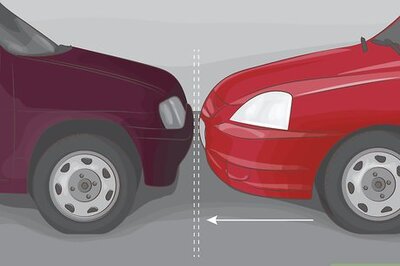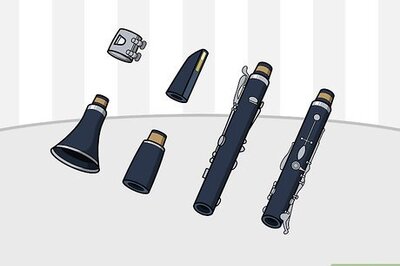
views
The occupation of sanitation work is intrinsically linked to caste in India. This link means that sanitation work becomes the sole occupation and sole concern of certain castes, and among them the Valmiki community. An even wider injustice appears when we look at the fate and state of the women in the Valmiki community.
This intersectionality means that women sanitation workers who hail from these marginalised communities face a triple prejudice – one for being sanitation workers, one for being lower caste, and one for being women.
A plethora of national level laws, policies, and programmes have been implemented through the years to protect sanitation workers hailing from these communities. Some of the most significant acts are The Protection of Civil Rights Act, 1955, The Employment of Manual Scavengers and Construction of Dry Latrines (Prohibition) (EMSCDLP) Act, 1993, and Prohibition of Employment as Manual Scavengers and their Employment (PEMSR) Act, 2013 by the Ministry of Social Justice and Empowerment.
Schemes and programmes offered by multiple public commissions and corporations such as the National Commission for Safai Karmacharis (NCSK), National Safai Karamchari Financial Development Corporation (NSKFDC) and Swachh Bharat Mission (SBM) also aim to protect the socio-economic and working rights of sanitation workers.
Empowerment through education and allyship
Harpic, as India’s leading brand in the lavatory care segment has a deep and nuanced understanding of the challenges women sanitation workers face, and particularly so, those who hail from lower castes. With an aim to lift these women from the morass of poverty, exploitation and stigma, Harpic founded the Harpic World Toilet College (HWTC) in 2016.
HWTC was established with the stated objective of improving the quality of life of sanitation workers through their rehabilitation by linking them with dignified livelihood options. Workers trained by the college are provided placement with various organisations. Following the successful proof of concept in Rishikesh, HWTCs have opened in Maharashtra, Aurangabad, in partnership with Harpic, Jagran Pehel and Maharashtra Government.
When these women emerge from HWTC armed with training and, more importantly, jobs in the organised sector, they find themselves firmly on the path to empowerment, financial security, and respect from their families and communities. They transform their own lives and those of their families, in addition to becoming shining examples of hope and possibility for their peers. Many even take up advocacy and activism, helping their erstwhile peers step out of the often exploitative and hazardous working conditions in the unorganised sanitation sector.
Thankfully, HWTC isn’t alone in this. There are numerous NGOs and grassroots organisations that are doing their best to help uplift women sanitation workers. In this article, we’re delving into the inspiring journeys of two remarkable women, Pushpaben Parmar and Hansaben Makwana, who hail from the Valmiki community and have found their path to empowerment and success, through training and education.
Pushpaben Parmar: A Beacon of Empowerment
Pushpaben Parmar, a 32-year-old woman residing in the Behrampura area of Ahmedabad, faced the harsh realities of life along with her husband while working as cleaners in residential societies. The struggle was real, but Pushpaben’s determination was stronger.
When she discovered the Centre for Development (CFD), Pushpaben saw an opportunity to uplift herself and those around her. She joined as a volunteer and became an active member of a Community-Based Organization (CBO) formed by CFD under the Samaveshi Shaher project. Through constant capacity development sessions and exposure provided by CFD, she transformed into a prominent grassroots social worker in her Valmiki Society.
Pushpaben’s impact extends far beyond her community. She helps individuals access employment opportunities, ensuring a more secure future for them. Additionally, she played a pivotal role in forming three Sakhi Mandals under the Samaveshi Sehar project, enabling 30 women from her locality to save money regularly.
“I have also been able to help women in my community avail gas cylinders (LPG) under the Ujwala Yojana,” Pushpaben proudly mentions.
Hansaben Makwana: Pursuing Dreams Against All Odds
Hansaben Makwana, aged 42, shared the sentiment of many women sanitation workers. She believed in the dignity of labour and recognized the crucial role her community played in maintaining clean spaces and promoting health. But she also knew, firsthand, how damaging the work can be to their self-esteem.
Despite being illiterate, Hansaben was determined to rise above societal judgments. She found employment as a sanitation worker and went a step further by forming a women’s self-help group (SHG). Through this SHG, she secured a loan and completed a beautician’s course, allowing her to pursue her dream of becoming a beautician.
Hansaben’s journey from sanitation worker to a thriving beautician showcases her resilience and determination. “I am now financially viable and can easily dream that my children will do well, with great jobs, once they complete their education,” she proudly states.
HWTC: Empowering Women Sanitation Workers
These remarkable stories of Pushpaben and Hansaben reflect the transformative power of education and empowerment. For HWTC, these stories, and many others, are proof that women’s limitless potential just needs that little push that education provides. That the shackles placed by societal stigma and dogma can be broken through. That people and communities change, and respect will come, even if it is late in coming.
Of course, that’s not all Harpic is doing. Joining hands with News18 to create the Mission Swachhta aur Paani movement, Harpic is powering the right conversations amongst stakeholders who have the power to make real tangible change. Mission Swachhta aur Paani is a movement that champions the cause of inclusive sanitation, equality for all genders, abilities, castes and classes and the strong belief that clean toilets are a shared responsibility
Society isn’t out there, it’s in here. It is made of us, our families, our friends, their families and their friends. When we begin to think differently about caste, society does too. Ditto women. Ditto sanitation work. Ditto sanitation workers. How we think about other people matters. How we talk about them matters even more.
Each of us has a voice. We can talk to our families, friends and colleagues. We can lead by example and pay our local sanitation workers fairly, make sure these people have toilet access, and gloves and masks to wear when performing their duties.
In essence, we can treat them with dignity. Join us here, to learn how you can play a part in making us a more equitable, just, Swachh and Swasth Bharat.




















Comments
0 comment